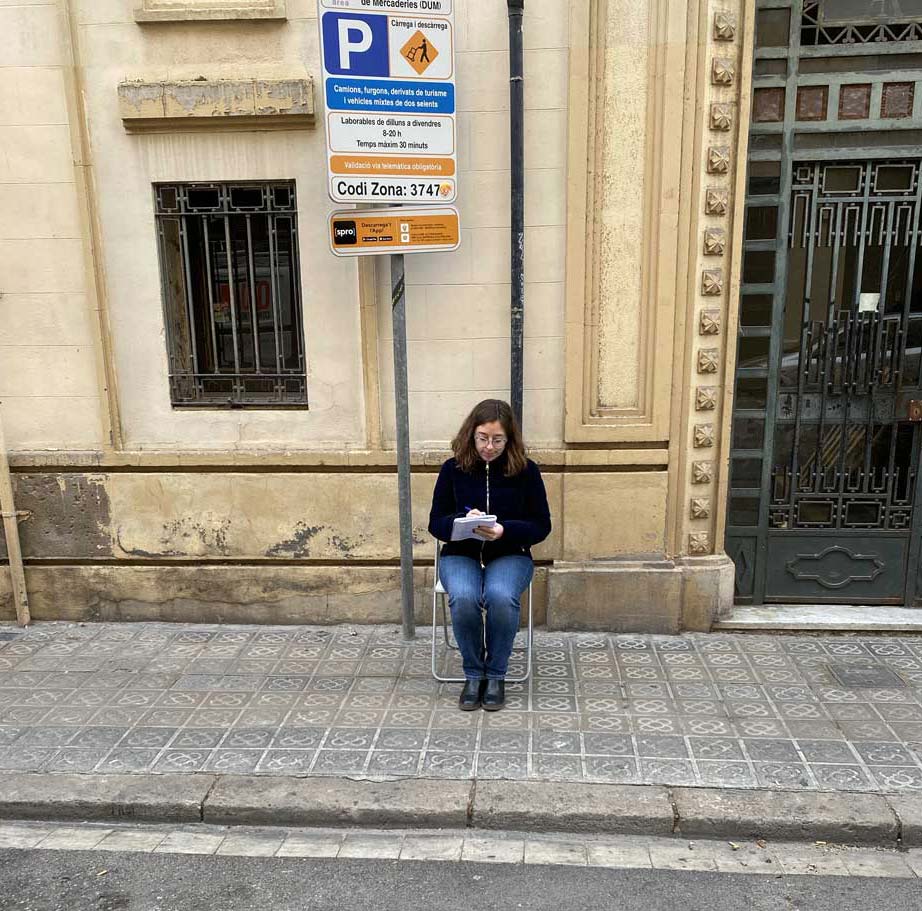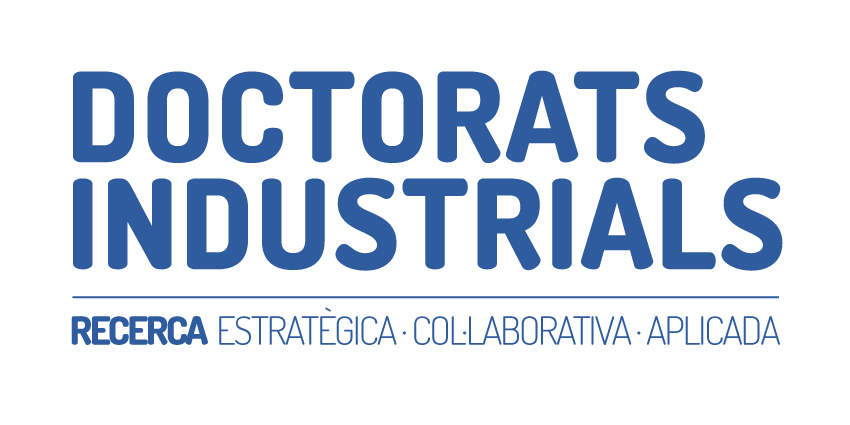L’equip format per membres de l’Ajuntament de Barcelona i la Universitat Politècnica de Catalunya aborda de manera integral la sostenibilitat de l’actual logística urbana barcelonina amb un projecte de Doctorat Industrial.
Proposa mesures d’harmonització entre la logística de l’ecommerce i les mercaderies amb l’ús de l’espai públic per a altres activitats ciutadanes.
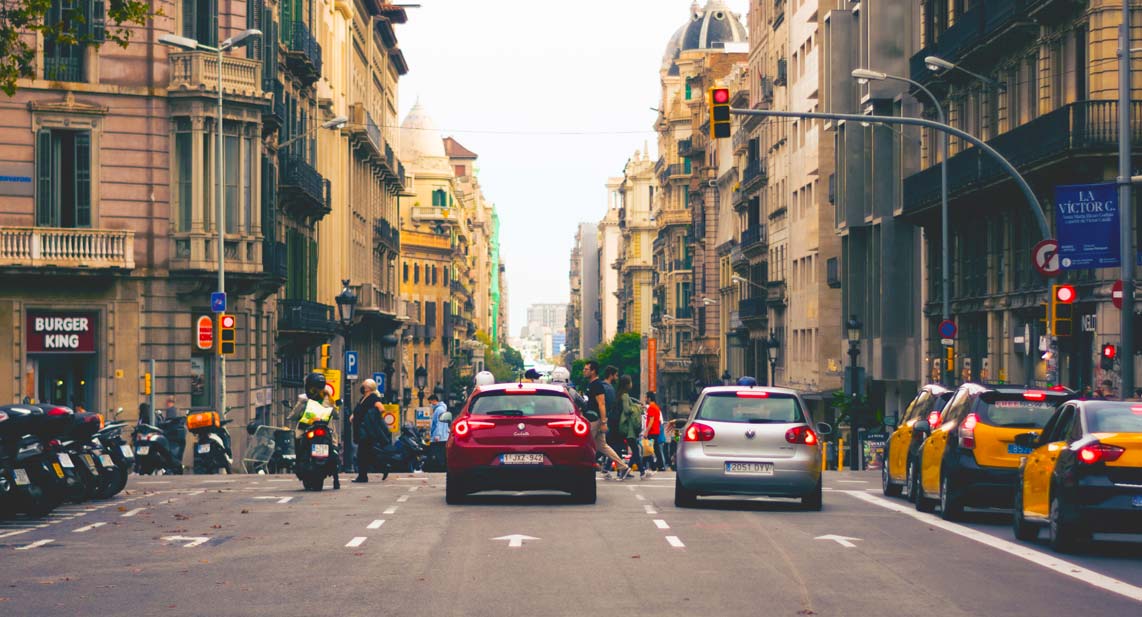
Els reptes de la mobilitat sostenible
El paradigma de la mobilitat urbana està en procés de transformació, malgrat que no serà un canvi immediat. Les principals ciutats europees han posat fil a l’agulla en el marc de l’Agenda 2030 per dissenyar un nou urbanisme. Les mateixes Nacions Unides plantegen “que totes les persones han de tenir accés a sistemes de transport segurs, assequibles, accessibles i sostenibles. I això inclou la seguretat viària, principalment mitjançant l’ampliació del transport públic”. Si bé és cert que els Objectius de Desenvolupament Sostenible (ODS) no parlen explícitament de mobilitat sostenible, és un fet que aquesta és un objectiu transversal ineludible per aconseguir alguns dels ODS. Les dades aportades per l’Agència Europea de Medi Ambient posen en evidència com els transports són els que contribueixen més a l’emissió de gasos d’efecte hivernacle. En general, les emissions de gasos d’efecte hivernacle del sector del transport de la UE augmenten progressivament entre el 2013 i el 2019. La pandèmia de la COVID-19 marca un punt d’inflexió amb una caiguda important de les emissions del transport a causa de la disminució de l’activitat, però tot i les mesures preventives, les emissions del transport no baixaran als nivells de 1990 fins al 2029. Per aquesta raó la Comissió Europea ha adoptat diferents mesures en transport, entre altres matèries, per reduir les emissions netes de gasos d’efecte hivernacle en un 55 % d’aquí al 2030.
Són molts els reptes per assolir els objectius proposats per aconseguir una bona gestió de nuclis urbans sostenibles: planificació urbana, planificació i disseny urbanístic favorable a la mobilitat sostenible, gestió i la pacificació del trànsit, ús compartit de l’automòbil, energies renovables en el transport públic, la mobilitat entre la regió metropolitana i el municipi de Barcelona, etc. És un fet molt positiu per a la ciutat de Barcelona ser un dels hubs logístics més potents del Mediterrani, i la gestió del port, l’aeroport i les diferents zones logístiques de la ciutat són un repte de gestió en l’àmbit de la mobilitat. La irrupció de l’ecommerce o comerç electrònic és un dels factors causants del fort increment en el flux de mercaderies a les ciutats. Segons Nasdaq el 95% de totes les compres es faran a través del comerç electrònic cap a l’any 2040, un fet que definitivament ja està transformant l’estructura logística de les ciutats. Aquests nous hàbits de compra en línia no només generen un increment de la demanda, sinó que també incorporen nous actors a la cadena de distribució i un nou perfil de demandant (les persones individuals i el seu nucli de convivència). Els actors tradicionals han tendit a transformar el seu model de negoci per tal d’adaptar-se a les noves tendències del mercat.
Recerca aplicada a la mobilitat urbana
Aquests reptes són un petit exemple de tot el que el projecte de doctorat industrial, encapçalat per l’Ajuntament de Barcelona i la Universitat Politècnica de Catalunya, pretén abordar per trobar-hi una solució. L’equip està format per la investigadora Imma Ribas, el gerent adjunt d’Infraestructures i Coordinació Urbana de l’Ajuntament de Barcelona Manuel Valdés López i la doctoranda Maria Savall. El seu treball de recerca col·laborativa se centra en la ciutat de Barcelona, amb un model de mobilitat enmig d’un procés de transformació radical. Segons les dades del seu estudi, l’antic model basat en un ús indiscriminat del vehicle privat ha generat unes externalitats negatives amb les quals la ciutat no pot conviure: la contaminació, la inseguretat viària i l’ocupació excessiva de l’espai públic. Altres factors com la situació d’emergència climàtica, el nombre anual de sinistres de trànsit, o la necessitat d’espai públic per a activitats que aportin un valor considerable al ciutadà, fan que la transformació del model de mobilitat sigui una prioritat per al consistori comtal actual. El nou Pla de Mobilitat Urbana de l’Ajuntament de Barcelona (2019-2024) té com a objectius principals reduir l’accidentalitat associada a la mobilitat, i incrementar la mobilitat segura, sostenible, saludable, equitativa i intel·ligent.
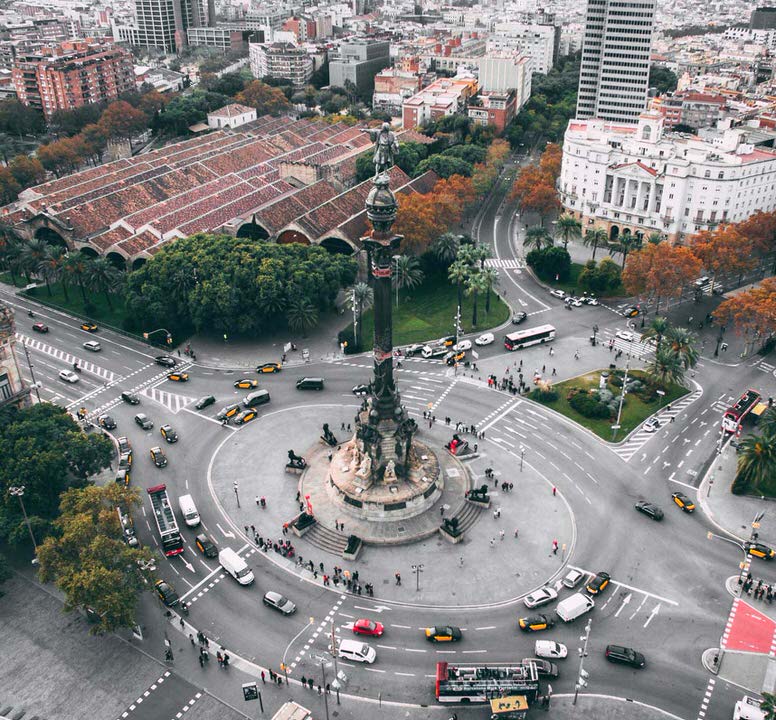
Quan parlem de mobilitat en el marc d’aquesta recerca aplicada a Barcelona hem de considerar dos grans grups de mobilitat: la mobilitat de persones i la mobilitat de mercaderies. Per aconseguir una mobilitat de persones sostenible, segons ens explica l’equip de la recerca, s’ha de conscienciar a la població perquè utilitzi el transport públic i així aconseguir una reducció en l’ús del cotxe privat. D’altra banda, pel que fa a la mobilitat de mercaderies el projecte creu necessari substituir els vehicles contaminants per vehicles sostenibles i optimitzar-ne l’ús. La Distribució Urbana de Mercaderies (DUM) dona suport a la distribució de serveis bàsics per a la població urbana, el desenvolupament del metabolisme urbà i l’economia de la ciutat. Segons les conclusions de la seva recerca, l’equip considera que l’activitat DUM es tendeix a abordar de manera fragmentada i reactiva, el fet és que per definir una política de la DUM cal la implicació de diferents àrees de l’Ajuntament i de la ciutat: mobilitat, infraestructures, urbanisme, economia, comerç, Guàrdia Urbana i medi ambient.
Reconeixement a Smart City Expo 2021 de Bilbao
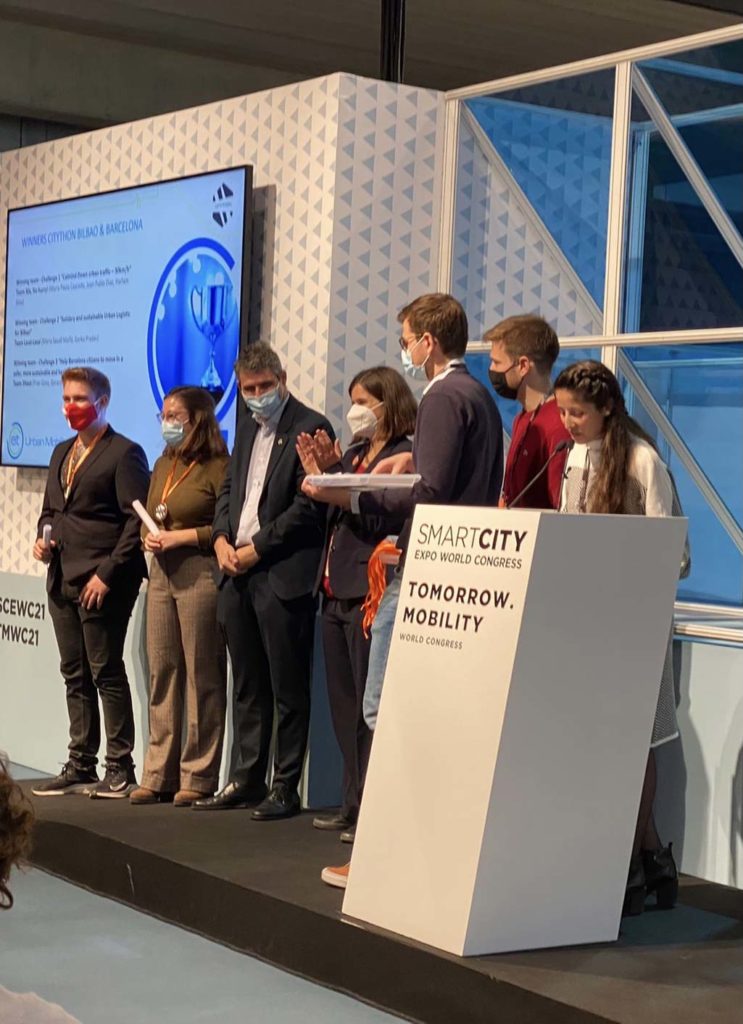
El projecte de doctorat industrial del qual parlem porta per títol “Nou model integral de distribució Urbana de Mercaderies a la ciutat de Barcelona: convivint amb l’espai públic”, i és un projecte de recerca col·laborativa nascut del treball, l’estudi i anàlisi constants de l’Imma Ribas i el Manuel Valdés (els dos tutors del projecte) per millorar la mobilitat, tant de persones com de mercaderies, a la ciutat de Barcelona. En aquest cas, els dos tutors coincideixen en la necessitat d’aprofundir en la distribució de mercaderies urbana a Barcelona, i van considerar els avantatges que presenta el fet de poder fer un Doctorat Industrial en aquest tema. El seu objectiu és fer un treball de fons que permeti abordar la problemàtica de la mobilitat urbana des d’una òptica integral: identificant l’efecte del seu desenvolupament a les zones urbanes, tant del model clàssic com de les noves tendències, des dels accessos fins a la darrera milla i proposant mesures integrals per harmonitzar-la amb l’ús de l’espai públic per a altres activitats ciutadanes.
L’equip format per l’Imma Ribas, el Manuel Valdés i la Maria Savall ja té una experiència reconeguda en l’àmbit de les solucions per a la mobilitat urbana de mercaderies. Recentment, la doctoranda ha rebut el premi Citython en el marc del challenge “Solidary and sustainable Urban Logistic for Bilbao” dins el Smart City Expo 2021 de la ciutat de Bilbao. Segons ens explica Maria Savall, que va participar en aquest challenge, el repte que plantejava l’EIT-Urban Mobility consistia a proposar una solució a l’impacte que té el comerç electrònic a la ciutat de Bilbao. Tal com ens comentava durant l’entrevista el premi ha sigut una oportunitat ideal per poder aplicar tota l’experiència i coneixements adquirits durant el primer any de doctorat:
“Així, per tal de fer front a aquest increment exponencial de les compres per Internet vam suggerir un model de distribució de mercaderies que tenia l’objectiu no sols de reduir l’impacte ambiental sinó també de minimitzar la congestió i el soroll. A més, recomanàvem una campanya per conscienciar a la població de les repercussions que té aquest nou hàbit.”
El model de distribució de mercaderies proposat per a la ciutat de Bilbao estava integrat per tres centres de consolidació urbans (CCU) i una xarxa de punts de conveniència. Aquests centres de consolidació urbans, entesos com a espais logístics situats prop de l’àrea on donen servei i des d’on es fan els lliuraments, s’haurien de situar a l’entrada de la ciutat per evitar que els vehicles de distribució entressin a Bilbao, a proposta de l’equip guanyador del challenge. La seva proposta també va incloure una distribució amb vehicles zero emissions des dels CCU fins als punts de conveniència. Els punts de conveniència serien tots els comerços locals que volguessin adherir-se a aquesta nova xarxa de punts de recollida. Malgrat que aquest model presentat és teòric i no inclou el punt de vista dels distribuïdors, de la població, de l’administració pública o dels consumidors, sí que ha tingut una certa implicació en la recerca que ara porten a terme a Barcelona. L’equip reconeix que aquest premi és un estímul per continuar treballant en l’objectiu de millorar la distribució de darrera milla a Barcelona, on ja treballen per presentar un model en què estigui reflectida la col·laboració amb els diferents actors, amb el qual es pugui quantificar la millora assolida, i aconseguir un impacte directe sobre la ciutat de Barcelona:
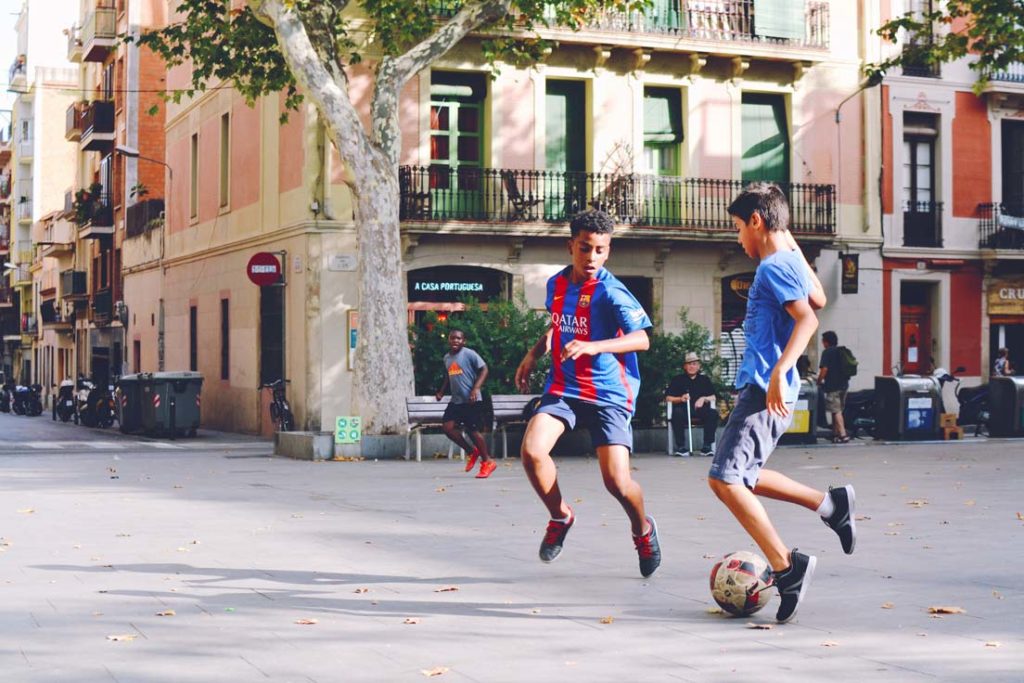
“Amb la implementació d’un model d’aquest estil es podria obtenir una reducció de la congestió, del soroll i de la contaminació ambiental. A més, també serviria per assolir una reducció de l’ús de l’espai públic i, per tant, aquest espai podria millorar i es podria posar a disposició de la ciutadania.”
Recerca col·laborativa, per què un Doctorat Industrial?
La investigadora de la Universitat Politècnica de Catalunya Imma Ribas ha repetit per segon cop l’experiència amb un Doctorat Industrial, el primer va ser relacionat amb la mobilitat de persones i aquest segon amb la mobilitat de mercaderies. Segons ens explica tot l’equip implicat, l’experiència d’un projecte d’aquesta mena és molt bona i del tot recomanable. La possibilitat de combinar l’experiència de l’Ajuntament de Barcelona amb la de la Universitat Politècnica de Catalunya ha sigut molt enriquidora en l’àmbit acadèmic, professional i personal.
El tutor del projecte dins l’Ajuntament de Barcelona, en Manuel Valdés, detalla que la possibilitat d’integrar un Doctorat Industrial a l’Ajuntament els ha permès analitzar científicament les possibles solucions i validar el coneixement pràctic que ja tenien: “això ens permet tenir present les noves tendències, avenços o innovacions per després elaborar l’aplicació en la nostra ciutat”. També per a la doctoranda Maria Savall poder dedicar-se a temps complet a l’anàlisi, l’estudi i el desenvolupament d’un nou model per distribuir mercaderies a Barcelona és una oportunitat única:
“El tema que tractem és un tema d’actualitat que els diferents actors estan treballant en profunditat i que fa que sigui molt més interessant i captivador.”
Maria Savall (Doctoranda Industrial) Tweet
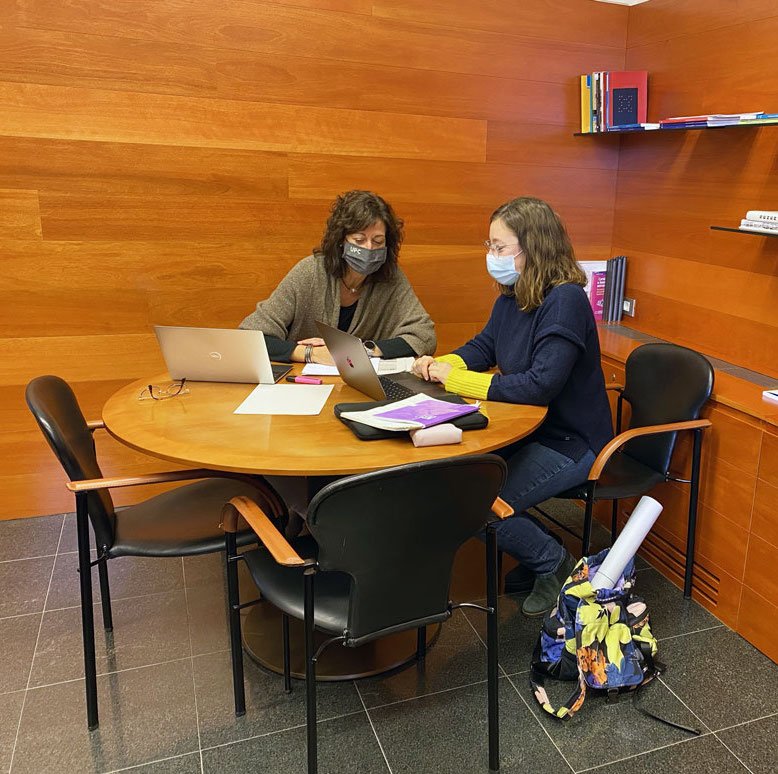
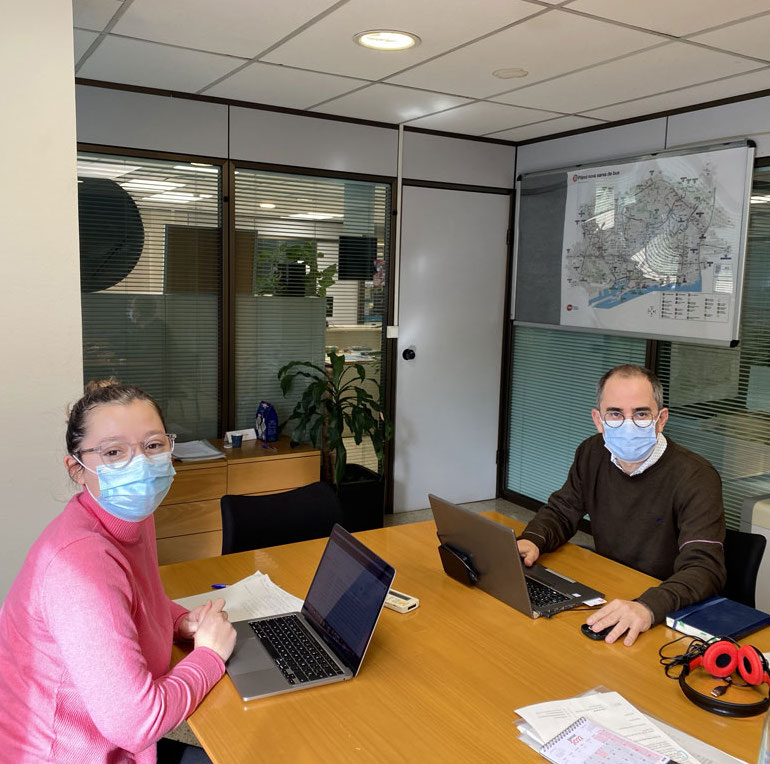
Avui dia les aportacions tecnològiques i les diferents solucions d’impacte en la societat es porten a terme de manera col·laborativa i global. D’aquest sistema de generació de coneixement i tecnologia en formen part tant les universitats i centres de recerca, com les diferents tipologies d’empreses i institucions innovadores. En aquest sistema on es generen sinergies i interaccions, com per exemple el fet que els centres de recerca puguin participar en certa manera del R+D+I de les empreses. La possibilitat de compaginar la formació a la universitat i el treball a l’Ajuntament ha sigut un element clau en aquest projecte de mobilitat urbana.
Els resultats de la recerca col·laborativa tenen la característica d’impactar directament en la societat. El coneixement potencialment útil per a la societat que es genera a les universitats i centres de recerca, troba un pont amb els Doctorands Industrials. Els doctors industrials actuen així com a ponts de transferència de coneixement i contribueixen a estrènyer les relacions entre el teixit industrial de Catalunya i les universitats i els centres de recerca.
